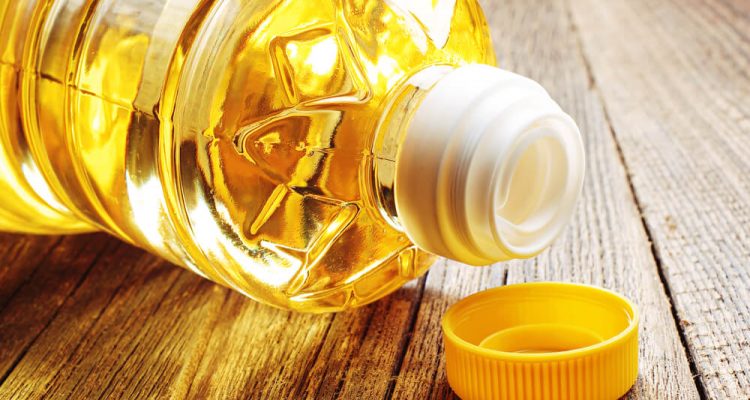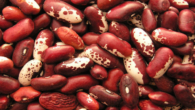
Is oil a useful or harmful product? How to choose and use it correctly?
1
Oil is necessary for the proper functioning of the body, as it provides it with the necessary fats. Olive and linseed oil are very popular due to their high quality. But Japanese doctors warn: in pursuit of high-quality products, you need to remember the quantity of their consumption. How to avoid excessive use of oil is in the article.
Effect of oil
Oil belongs to the category of fats and performs important functions in our body.< /p>
Types of oil
Recommended oils
– n-3 (alpha-linolenic acid, EPA, DHA) – sesame, linseed oil
-n-9 (oleic acid) – olive oil, rapeseed oil, rice oil
They reduce the level of triglycerides in the blood and contribute to blood thinning, thereby preventing arrhythmia and atherosclerosis.
Watch the amount of these oils
– n-6 (linoleic acid): corn, sunflower, sesame, almond oil.
Saturated fatty acids – meat, lard, butter.
n-6 can also lower cholesterol, but too large amounts can lead to allergies and other problems.
Excessive consumption of saturated fatty acids increases the level of LDL (“bad”) cholesterol and increases the risk of atherosclerosis and myocardial infarction, so be careful not to eat too much meat and butter.
These types of oils should be avoided
Trans-fatty acids-margarine, cooking fat.
Trans-fatty acids not only increase the level of LDL (bad) cholesterol, but also decrease the level of HDL (“ good”) cholesterol. This leads to the risk of developing coronary heart disease, especially myocardial infarction.
Recommended amount of oils per day
According to Japanese dietary norms, the ratio between energy intake from total fat content and total energy intake (energy-to-fat ratio) is set at the level of 20% to 30% for men and women aged one year and older.
Meanwhile, according to the National Health and Nutrition Examination Survey, the proportion of men aged 20 and over with a fat-to-energy ratio greater than 30% is about 35% and 44.4% of women aged 20 and over. At the same time, the proportion of people with a fat-to-energy ratio of more than 30% is increasing among both men and women.
In recent years, interest in oils has been growing, and we have the impression that many consume too much olive and linseed oil, as well as other fats only because they are quality products.
As we noted above, too much fat, which has a lot of energy per gram, can easily lead to excess calories and, as a result, obesity and lifestyle-related diseases.
In addition to checking the quality of the oil, you should also pay attention to its daily consumption rate.
How to avoid using too much oil
Reduce the amount of oil indicated in the recipe by about a third.
In recent years, everyone mainly uses pans with Teflon coating, which reduce the risk of burning during cooking, so you can get by with a small amount of oil.
In addition, many of us add it by eye, as a result of which it is used more than intended.
This is a good opportunity to measure the amount of oil used in cooking and try to add less oil than indicated in the recipe. .
As for frying, which can burn food, after frying in a small amount of oil, add a little water to the pan.
Use oil-free dressings
“Eating vegetables is good for health!” – this is what many believe, so you can often see large portions of vegetables in salad bowls, which are seasoned with a generous amount of dressing.
Vitamins and minerals contained in vegetables are necessary for regulation of the body and metabolism, but if you add too much dressing, the consumption of oil increases, and then one serving of salad can turn out to be much more calories than you think – from 300 to 600.
In recent years, people are increasingly concerned about their health, this has led to the appearance of a wide range of low-calorie dressings without oil.
A tablespoon of sesame dressing or Caesar salad dressing can contain from 60 to 80 kilocalories, while a tablespoon of dressing without oil is only 10 to 30.
However, in such dressings, as a rule, there is more salt, so watch the amount. Also, if you buy a ready-made salad at the store, it may not have an oil-free dressing, so use only half or two-thirds of the added dressing to cut down on oil and calories.
“Obvious” oil
Reduce the consumption of not only fatty foods, but also those dishes that may potentially contain oil.
Many are careful not to eat a lot of foods prepared in fritters For example, nuggets and other dishes in batter, because they contain a lot of oil and are high in calories.
But at the same time, “non-obvious” oils are often overlooked.
For example, omelettes, tuna and egg sandwiches, curries and stews, as well as fried eggplant and seafood, all use a lot of oil in their cooking, and most of these products absorb it well.
When you buy prepared food at the store or dining out, read the nutritional information and try to choose foods with a fat content of about 15-20 grams per serving.
If the nutritional value is not indicated, then choose foods prepared in a way that does not require a lot of oil – grilling, boiling or steaming.
Buy lean meats
You can reduce the amount of fat if you choose leaner cuts of meat such as thighs or loins. For example, 100 grams of pork breast contains 390 kilocalories, while tenderloin contains only 130 – this is a big difference!
Minced meat is also often overlooked. It contains not only meat, but also fat, so dishes such as hamburgers and dumplings made from it usually contain a lot of fat. If you cook yourself, you can reduce the fat content by choosing lean or minced chicken. When it comes to hamburgers, don't just use ground beef or pork. Reduce the amount of beef or pork by adding ground chicken or tofu to reduce calories by a quarter or even half.
Use lemon juice, vinegar, ginger, cinnamon and other aromatics< /p>
The use of aromatic spices and seasonings fills the dish with flavor, so it becomes satisfying even with a low fat content.
Lemon juice and vinegar help the body absorb oil better and prevent its accumulation, so water them down meat, fish and other fatty foods.
In this article, we talked about ways to use oil and the recommended amount.
Fats are an integral part of our lives. They give taste and nutrition. However, they can harm your health if used incorrectly.
Oil is also good for health, but it is important not to use too much of it and get the most out of what you need.









Leave a Reply